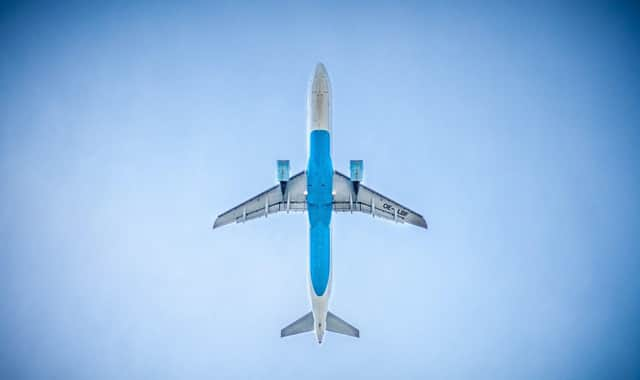Academics keep feet on the ground in bid to cut travel emissions


Prior to the coronavirus pandemic, business travel accounted for almost a quarter of the university’s annual carbon footprint – amounting to around 13,194 tonnes of carbon dioxide equivalents (tCO2e).
Most of the travel-related emissions were generated through international and domestic flights.
Advertisement
Hide AdAdvertisement
Hide AdNow, the university is aiming to shrink that total footprint by 7.5 per cent to 5,597 tCO2e a year by 2030.
To do this it will encourage employees and students to stay put and make greener travel choices, including continuing to rely heavily on virtual meetings.
Staff and postgraduate researchers will be expected to avoid travel wherever possible, to choose public ground transport over flying and to maximise the outcomes of unavoidable trips.
They will also be required to consider transport options in funding applications.
The move is one of the first actions on recommendations made in the university’s recent Glasgow Green report, which set out how the institution should respond to the global climate emergency.
The strategy set a target for the university to reach net-zero greenhouse gas emissions by 2030, five years earlier than the goal set by previous institutional plans and 15 years ahead of Scotland’s national target.
Professor Sally Wyke, deputy director of the university’s Institute of Health and Wellbeing, chaired the group which drew up the guidance.
She said: “As a research-intensive university involved in a wide variety of projects around the world, we’re conscious that travel is, and will remain, an important part of the university’s everyday business.
Advertisement
Hide AdAdvertisement
Hide Ad“We’re also conscious that, in a post-pandemic world, our options to use technology like video conferencing to streamline travel to only the most necessary trips are more extensive than they have ever been.
“Our priorities are changing, and we’re committed to helping staff change along with us by building awareness into every aspect of how the university works.”
She added that steps would be taken to make sure no staff members would be disadvantaged by efforts to reduce their travel.